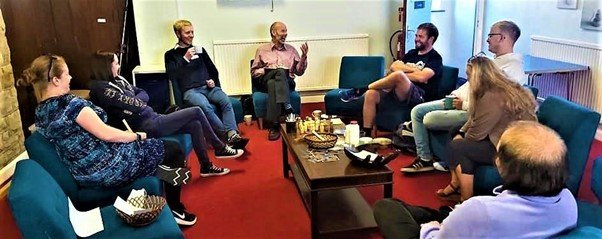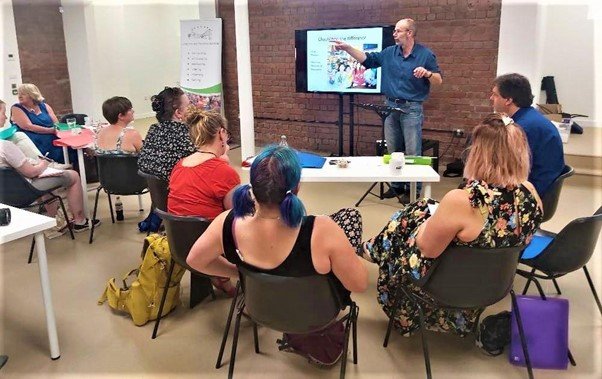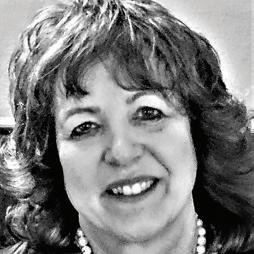School Chaplaincy
Being there
Chaplaincy does life with people where they are. It shares the journeys people are on. It is being ‘in the world’ where life is often messy, rough-edged, and conflicted.
I believe chaplaincy allows Christians to stand within the untidiness and pain of people’s lives. Hospitals, prisons, airports, shopping centres, police stations, sports teams, universities, fire stations, army, RAF, navy, the Speaker of the House of Commons, cruise ships, and businesses all recognise the value of such a ministry.
St. Martin of Tours (316 – 397 AD) is seen as the founder of Christian chaplaincy. His life is an example of chaplaincy in action. He was mobile, travelling around meeting ordinary people, especially those in need of help. One day he gave half of his cloak to a poor, cold man. On his death Martin’s half of the cloak was kept as a relic. The guardian of this cloak became known as the capellanus (cappa means cloak in Latin.) Cappelanus eventually became ‘chaplain’ in the English language.
Chaplaincy is particularly valued when it comes to serving young people. Like Martin, we need to go where the need is. Over 95% of young people are not in church. They are, however, in school, so to serve, help, walk beside or invest in the next generation we need to be where they are - in schools. School chaplaincy offers an opportunity for us to ‘be there’.
Schools (and parents) are on the frontline with our children and young people, as they face a wide range of challenges. This includes cyber-bullying, sexting, poverty, pornography, cannabis use, broken families, bereavements, exam pressure, friendship rifts, the whole social media culture, anxiety and other mental health difficulties to mention a few. The statistics around these areas are increasingly concerning. Christians are needed as armour bearers, mentors, listeners, role models and intercessors.
Every school is, of course, unique, and chaplains themselves have different backgrounds and gifts. This means there are several models or types of chaplain. A school chaplain has to work as a guest within a school, this means there are opportunities, limits and expectations. The school chaplain may be the only contact with a person of faith in the life of a student or staff member - this contact needs to be a positive, professional, productive interaction. It is not the chaplain’s purpose to bring about commitment, but a school chaplain is often seen as the public face of God in the largely secular space of a school.
Of course, all school chaplains minister to all pupils of all faiths and none, to staff and to the wider school community (e.g. parents). A school chaplain is the word of God as flesh and blood, journeying with God and alongside those in the neighbouring community. Headteachers, governors and teachers are under their own pressures, especially around long working hours and problems with teacher retention. Many value a chaplaincy presence in the staff room.
A chaplain may support pupils through loss and bereavement, listen to those who are struggling with their emotional well-being, signpost, encourage exploration of what’s meaningful and spiritually rewarding in life, help those in a school community to feel cared for, build a bridge between church and school, speak truth to power, encourage curiosity around faith, foster social action, offer collective worship, mentor, stand with pupils already on a faith journey, and more.
So, Christians & Sheffield Schools (CaSS) has established a school chaplaincy training and resourcing course with the aim that school chaplains feel empowered and equipped to serve well. The course is very practical, including topics such as: understanding chaplaincy; school expectations and boundaries; children & spirituality; characteristics of Generations Alpha and Z; chaplaincy in a multi-faith setting; safeguarding; mental health; loss and bereavement; identity matters; self-awareness; RE; self-care; adverse childhood experiences; models of school chaplaincy; collective worship; listening; mentoring, and more. Each session is run by a different specialist speaker. There is an opportunity to meet and learn from working school chaplains.
Here are some of the quotes from people who have attended the course:
"Excellent. High quality presentation and speakers, and a very well-structured course."
"Inspiring and helpful."
"Such breadth and quality of input."
"Hugely informative, real and helpful course."
"I would recommend it."
“I did not put this course together, so I can attest with independence that it is one of the best courses I know.”
Our vision is for there to be a school chaplain linked to every Sheffield School, supporting all who work or learn in them. We have trained 62 school chaplains (mostly from Sheffield) over four training courses, so far. We are also working to establish a Sheffield school chaplaincy community. It is our prayer that chaplains will support each other, be there to call on in times of trouble, share good practice and pray for each other etc.
If you are interested in training as a school chaplain or finding out more, CaSS runs a training/resourcing course during the school Summer Term. (The dates are still under consideration as we go to press.) Contact fiona.walton@cass-su.org.uk if you wish to register an interest.
To get you started, you might like to attend Cherry Mair’s (School Chaplain & Bents Green Methodist Church Youth Minister) one-hour workshop, ‘Chaplaincy & Mentoring’ or Huw Thomas’ (Sheffield Diocesan Director of Education) one-hour workshop ‘Making Friends with Schools’, both taking place at the Joined Up Conference on 4 March. Booking and further information at www.joinedupconference.com
Questions
What do you think school chaplains have to offer a school community?
Where can you give away ‘half of your cloak’?
Can you commit to pray for Sheffield school chaplains?
Can you pray for schools to be open to chaplaincy?
Consider: are you being called to school chaplaincy?
About the Author
Fiona Walton works for Christians & Sheffield Schools (CaSS). She also teaches and is the Open the Book Training and Development Officer for Yorkshire.




